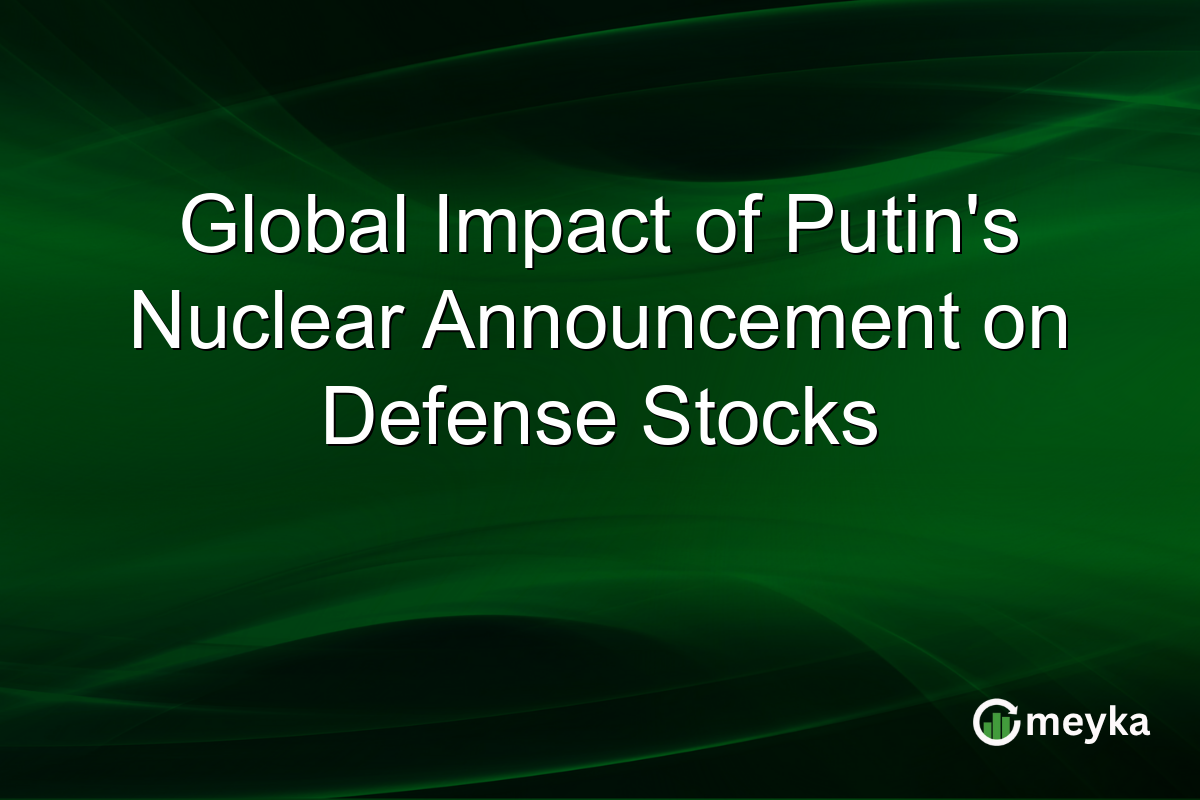Global Impact of Putin’s Nuclear Announcement on Defense Stocks
Vladimir Putin’s recent announcement about deploying new nuclear-capable missiles has sent shockwaves across geopolitical and financial landscapes. This statement intensifies the ongoing US-Russia tensions, raising questions about potential military escalations. Simultaneously, defense stocks have captured the spotlight as investors speculate on increased military expenditures globally. The news underscores the intricate balance between geopolitical threats and market responses, forcing stakeholders to reassess their strategies.
Continue Reading on Meyka
This article is available in full on our main platform. Get access to complete analysis, stock insights, and more.
Read Full Article →





